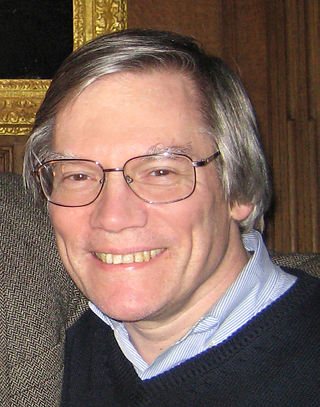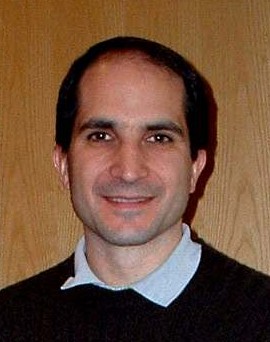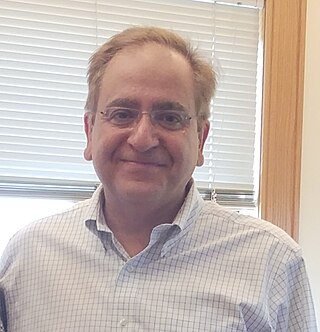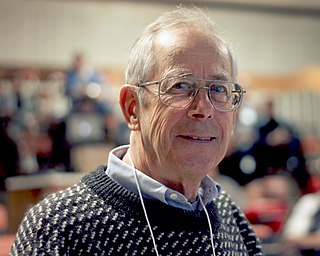Honors
This section of a biography of a living person does not include any references or sources .(February 2022) |
- New Horizons in Physics Prize (2015)
- Department of Energy Early Career Award (2012)
- Terman Award, Stanford (2010)
Leonardo Senatore is an Italian theoretical physicist and professor at the Stanford Institute for Theoretical Physics, the Kavli Institute for Particle Astrophysics and Cosmology, and SLAC. He was recently appointed professor at ETH Zurich. [1]
Leonardo Senatore | |
|---|---|
| Alma mater | Scuola Normale Superiore di Pisa (2003) MIT (PhD, 2006) |
| Awards | New Horizons Prize (2016) |
| Scientific career | |
| Fields | Cosmology |
| Institutions | Harvard Institute for Advanced Study Stanford SLAC ETH Zurich |
| Doctoral advisor | Nima Arkani-Hamed Alan Guth |
Senatore initially studied aerospace engineering, before earning a Laurea in Theoretical Physics from the Scuola Normale Superiore di Pisa in 2003. [2] He continued his studies at the MIT Center for Theoretical Physics, earning a Ph.D. in 2006 under the supervision of Nima Arkani-Hamed and Alan Guth. [3] He then held joint postdoctoral positions at Harvard and the Institute for Advanced Study. [4] [5]
Senatore's research focuses on theoretical cosmology. [6] Some of his contributions have included work applying effective field theory techniques to cosmology, theoretical insights regarding inflation, and his studies of large-scale structure in the universe. [1] He has also worked on analysis of data from experiments like WMAP, which studied the cosmic microwave background, and connections of string theory to cosmology. [4]
Senatore won an Early Career Award from the U.S. Department of Energy in 2012 for his work, as well as a New Horizons in Physics Prize in 2016 "for outstanding contributions to theoretical cosmology." [7] [8]
This section of a biography of a living person does not include any references or sources .(February 2022) |

Alan Harvey Guth is an American theoretical physicist and cosmologist who is the Victor Weisskopf Professor of Physics at the Massachusetts Institute of Technology. Along with Alexei Starobinsky and Andrei Linde, he won the 2014 Kavli Prize "for pioneering the theory of cosmic inflation." Guth's research focuses on elementary particle theory and how particle theory is applicable to the early universe.

Juan Martín Maldacena is an Argentine theoretical physicist and the Carl P. Feinberg Professor in the School of Natural Sciences at the Institute for Advanced Study, Princeton. He has made significant contributions to the foundations of string theory and quantum gravity. His most famous discovery is the AdS/CFT correspondence, a realization of the holographic principle in string theory.

Leonard Susskind is an American theoretical physicist, Professor of theoretical physics in Stanford University and founding director of the Stanford Institute for Theoretical Physics. His research interests are string theory, quantum field theory, quantum statistical mechanics and quantum cosmology. He is a member of the US National Academy of Sciences, and the American Academy of Arts and Sciences, an associate member of the faculty of Canada's Perimeter Institute for Theoretical Physics, and a distinguished professor of the Korea Institute for Advanced Study.

Ashoke Sen FRS is an Indian theoretical physicist and distinguished professor at the International Centre for Theoretical Sciences (ICTS), Bangalore. A former distinguished professor at the Harish-Chandra Research Institute, Allahabad, He is also an honorary fellow in National Institute of Science Education and Research (NISER), Bhubaneswar, India he is also a Morningstar Visiting professor at MIT and a distinguished professor at the Korea Institute for Advanced Study. His main area of work is string theory. He was among the first recipients of the Breakthrough Prize in Fundamental Physics "for opening the path to the realization that all string theories are different limits of the same underlying theory".

Cumrun Vafa is an Iranian-American theoretical physicist and the Hollis Professor of Mathematicks and Natural Philosophy at Harvard University.

Nima Arkani-Hamed is an American-Canadian theoretical physicist of Iranian descent, with interests in high-energy physics, quantum field theory, string theory, cosmology and collider physics. Arkani-Hamed is a member of the permanent faculty at the Institute for Advanced Study in Princeton, New Jersey. He is also director of the Carl P. Feinberg Cross-Disciplinary Program in Innovation at the Institute and director of The Center for Future High Energy Physics (CFHEP) in Beijing, China.

Shiraz Naval Minwalla is an Indian theoretical physicist and string theorist. He is a faculty member in the Department of Theoretical Physics at Tata Institute of Fundamental Research, Mumbai. Prior to his present position, Minwalla was a Harvard Junior Fellow and subsequently an assistant professor at Harvard University.
Eva Silverstein is an American theoretical physicist, cosmologist, and string theorist. She is a professor of physics at Stanford University and director of the Modern Inflationary Cosmology collaboration within the Simons Foundation Origins of the Universe initiative.

Phillip James Edwin Peebles is a Canadian-American astrophysicist, astronomer, and theoretical cosmologist who is currently the Albert Einstein Professor in Science, emeritus, at Princeton University. He is widely regarded as one of the world's leading theoretical cosmologists in the period since 1970, with major theoretical contributions to primordial nucleosynthesis, dark matter, the cosmic microwave background, and structure formation.
The MIT Center for Theoretical Physics (CTP) is the hub of theoretical nuclear physics, particle physics, and quantum information research at MIT. It is a subdivision of MIT Laboratory for Nuclear Science and Department of Physics.
The Sackler Prize is named for the Sackler family and can indicate any of the following three awards established by Raymond Sackler and his wife Beverly Sackler currently bestowed by the Tel Aviv University. The Sackler family is known for its role in the opioid epidemic in the United States, has been the subject of numerous lawsuits and critical media coverage, and been dubbed the "most evil family in America", and "the worst drug dealers in history". The family has engaged in extensive efforts to promote the Sackler name, that has been characterized as reputation laundering. In 2023 the Sackler family's name was removed from the name of the Tel Aviv University Faculty of Medicine.
The Stanford Institute for Theoretical Physics (SITP) is a research institute within the Physics Department at Stanford University. Led by 16 physics faculty members, the institute conducts research in high energy and condensed matter theoretical physics.

Peter van Nieuwenhuizen is a Dutch theoretical physicist. He is a distinguished Professor at Stony Brook University in the United States. Widely known for his contributions to String theory, Supersymmetry, Supergravity and Field theory.
Raphael Bousso is a theoretical physicist and cosmologist. He is a professor at the Berkeley Center for Theoretical Physics in the Department of Physics, UC Berkeley. He is known for the Bousso bound on the information content of the universe. With Joseph Polchinski, Bousso proposed the string theory landscape as a solution to the cosmological constant problem.
Xiaoliang Qi is a Chinese physicist and professor at Stanford University who studies quantum entanglement, quantum gravity, quantum chaos, and topological phenomena in condensed matter. He earned his B.S. in 2003 and Ph.D. in 2007 from Tsinghua University.

Tracy Robyn Slatyer is a professor of particle physics with a concentration in theoretical astrophysics with tenure at MIT. She was a 2014 recipient of the Rossi Prize for gamma ray detection of Fermi bubbles, which are unexpected large structure in our galaxy. Her research also involves seeking explanations for dark matter and the gamma ray haze at the center of the Milky Way. In 2021, she was awarded a New Horizons in Physics Prize for "major contributions to particle astrophysics, from models of dark matter to the discovery of the "Fermi Bubbles."
Christopher Michael Hirata is an American cosmologist and astrophysicist.
Douglas Stanford is an American theoretical physicist. He is an associate professor of physics at Stanford Institute for Theoretical Physics of Stanford University. His research interests include quantum gravity, quantum field theory and string theory. Stanford was awarded the 2018 New Horizons in Physics Prize by Fundamental Physics Prize Foundation for his work on improving the understanding of quantum mechanics of black holes via chaos theory.
Marina Huerta is an Argentinian theoretical physicist and a physics professor. She is known for her work on quantum entropy in quantum field theory. She has provided a new interpretation of the Bekenstein bound. As of 2020, she has 29 peer-reviewed publications with more than 2000 citations.
Philip C. Schuster is a theoretical elementary particle physicist and chair of the Particle Physics and Astrophysics Department at SLAC National Accelerator Laboratory.